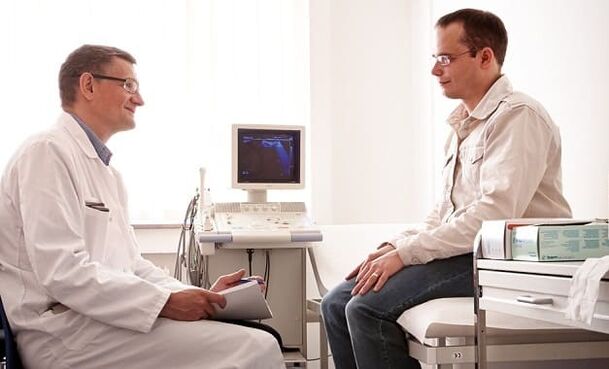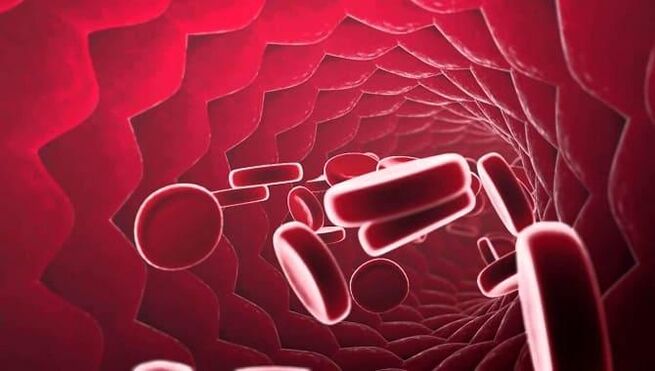Prostatitis is an inflammation of the prostate, accompanied by an alteration of sexual function, of the urination disorder.It is diagnosed on the basis of Bakposev data of prostatic juice, clinical blood test and ultrasound of pelvic organs.Prostatitic tablets destroy the pathogenic flora in the prostate gland, restore the passage of urine and stop the pain.Conservative therapy includes different action drugs - antibiotics, muscle, analgesic and antipassia.
Complex approach to treatment
With uncomplicated prostatitis, they use conservative treatment.The basis of therapy is two types of drugs:
- Etiotropic (antibiotics, antiviral, anticicotic agents) - destroys the causal agent of the infection;
- Symptomatic pain relievers (non -narcotic pain relievers, muscle relaxing, antihistamine) - Stop symptoms or reduce their severity.
In the case of chronic inflammation, prostate massage procedures and physiotherapeutic are prescribed - laser therapy, magnetotherapy, transuretral microwave thermotherapy.
Types of drugs used
Prostatitic tablets are prescribed by a doctor-Andrologist.With uncomplicated inflammation of the prostate gland, it is treated on an outpatient.Therapy includes drugs from several pharmacological groups:
- antibacterial;
- antispasmodic;
- analgesics;
- vasodilatant;
- sedatives;
- Immunostimulant.
The choice of drugs is affected by the severity of the clinical picture, the type of pathogen, the presence of complications.With prostatitis in the context of urethritis or cystitis, uroseptic is also used - antimicrobials that eliminate infection in all parts of the urinary system.

Before prescribing drugs, the Andrologist performs an examination, during which prostatitis is distinguished from diseases with similar symptoms - bladder's neck, adenoma and carcinomas of the prostate.
Antibiotics
In 8 out of 10 cases, inflammation of the gland is caused by pathogenic bacteria.Therefore, with prostatitis, antimicrobial drugs are prescribed in men.They prefer antibiotics that can enter the glandular tissue and create high concentrations there.
Recommended drugs:
- Macrolides;
- fluoroquinolones;
- Tetracyclines.
The first improvements are perceptible 2 to 3 days after the start of treatment.But in order to certainly destroy the pathogenic flora in the genitorerinary system, antibiotics take at least 4 weeks in a row.
In chronic prostatitis, drugs are not prescribed that accumulate badly in the fabrics of the prostate gland.Therefore, aminoglycosides are never used for treatment.

The therapeutic effect of most antimicrobial drugs depends on the dose.In the treatment of acute inflammation, it is very important to take tablets at a dose necessary for a bactericidal effect.
Anti-inflammatory and analgesic
Non-steroidal anti-inflammatory drugs (NSAIDs) are the best remedies against pain and inflammation in the genitorerinary system.Most of the means in this group inhibit the production of a special enzyme (cycloxygenase), which causes inflammatory reactions.
Acute prostatitis causes intense pain in the pelvic area and the perineum.
Licking of inflammation increases the risk of hyperplasia and prostate adenoma.Consequently, patients with chronic prostatitis are also prescribed drugs that prevent the growth of the gland fabric.
Alpha-clockers
Prostatitis is accompanied by inflammation and an increase in the gland, due to which the urethra is compressed.Consequently, the urban problems occur - the slow and incomplete emptying of the bladder, the pain.Alpha-blockers are used to restore the passage of urine.They relax the smooth muscles, which widen the inner diameter of the urethra and the neck of the bladder.

The drugs in this group develop venous and arterial vessels lower blood pressure.
Alpha-blockers can be attributed to the group of corruptions of urodynamics.They do not eliminate the cause of the disease, but facilitate urination.The effect is noted 1 to 2 weeks after the start of treatment.
Sedatives
For treatment in men, prostatitis is often sedatives used.The disease negatively affects the quality of life, causing problems of urination, erectile dysfunction.This becomes the cause of neuropsychiatric disorders - emotional lability, depressive state, neurosis.
To improve the state of psycho emotion, drugs are used:
- normalize the functioning of the nervous system;
- relieve irritability;
- Improve sleep;
- Increase resistance to constraints.

Sedative drugs improve the effect of antipsychotics and tranquilizers.Therefore, before taking pills, you should consult a doctor.
Musory
With recurrent prostatitis, muscle relaxants are prescribed - drugs that have a relaxing effect on smooth muscles.They eliminate the tension of the bladder, urethral channel.To obtain the maximum relaxing effect, they are used in combination with NSAIDs.Musorelaxants reduce the concentration of non-narcotic pain relievers, which prevents irritation of the gastrointestinal mucosa.
Muscular relaxing preparations are used exclusively with high muscle tone, a spasm of the channels or urinary bubbles.Overdose is heavy with nausea, muscle pain, inhibition of breathing.
Musorelaxants are contraindicated in an ulcer of an intestine 12 and Parkinson's disease.
Restore blood circulation
To cure prostate, it is necessary to improve the blood supply to pelvic organs.With blood flow, organs receive nutrients, which stimulates metabolism and regeneration of damaged tissues.The systematic intake of drugs prevents congestion, edema edema and compression of the urethral channel.
For the treatment of the gland, drugs with the following properties are prescribed:
- Vasodilatant - Increase the diameter of blood capillaries and blood flow to pelvic organs;
- Angioprotector - Increase the density of the vascular walls, prevent swelling;
- Antiplatelet - prevent plattttch collage.
Preparations to restore blood flow in the pool are used to treat men with slow prostatitis.
Medicines are used exclusively in complex therapy.To avoid irritation of the gastric mucosa, the tablets are taken after eating.
Immunomodulators
It is recommended to treat prostatitis with drugs that stimulate the functioning of the immune system.They increase resistance to infections, which reduces the probability of exacerbations.
Indications for the reception of immunomodulators:
- Recurrent prostatitis;
- Vitamin-mineral insufficiency;
- secondary immunodeficiency;
- Chronic bacterial inflammation.

With a premature refusal to treat the resistance of the body, infections are reduced.For this reason, the probability of a relapse of prostatitis increases.
To reach the desired therapeutic effect, immunomodulators are followed in courses for 2 to 8 weeks.
Phytotherapeutic drugs
Preparations based on components of plant and animal origin do not increase the drug on the body.They are well tolerated, do not cause serious side effects.
Natural drugs are suitable for the treatment of prostatitis and other urological pathologies such as adenoma or hyperplasia of the glands.
Preparations based on medicinal herbs often cause allergic reactions and hives.Therefore, with hypersensitivity to components, it is preferable not to be treated with phyto-men.
Vitamins
Vitamin-mineral deficiency is one of the most common causes of relapse of bacterial infection in the genitorerinary system.To strengthen immunity, the lack of nutrients is reconstructed.Consequently, with prostatitis, vitamin agents are prescribed.
Tablets with several bioactive components reconstitute vitamins.For this reason, metabolism is accelerated, cellular immunity is reinforced.
Polyvitamins are recommended to be taken for the prevention of prostatitis exacerbations twice a year - in the fall and spring.They reduce the risk of hypovitaminosis, colds and metabolic disorders.
The danger of self-medication
Prostatitis is an urological disease that often enters a chronic evolution.Therefore, it is strictly not recommended to take medication without prescribing a doctor.Self-medication is heavy with disorders in the work of the urinary and reproductive system.Irrational therapy is dangerous:
- Chronic prostatitis;
- erectile dysfunction;
- acute urinary retention;
- urolithiasis;
- infertility;
- Suppuration in prostate;
- narrowing of the urethra.
Antibiotics wrongly incorrectly selected do not destroy the infection, which causes purulent inflammation of the gland.The prostate abscess is an indication of surgery.
Prostatitis is a male disease, inflammation of the prostate gland.With appropriate and appropriate treatment, therapy is good.But in the case of a transition to a chronic form, it often causes complications.Therefore, the first signs of prostatitis - difficulty urinating, pain in the perineum, blood in the urine - you must contact a urologist or an andrologist.
























